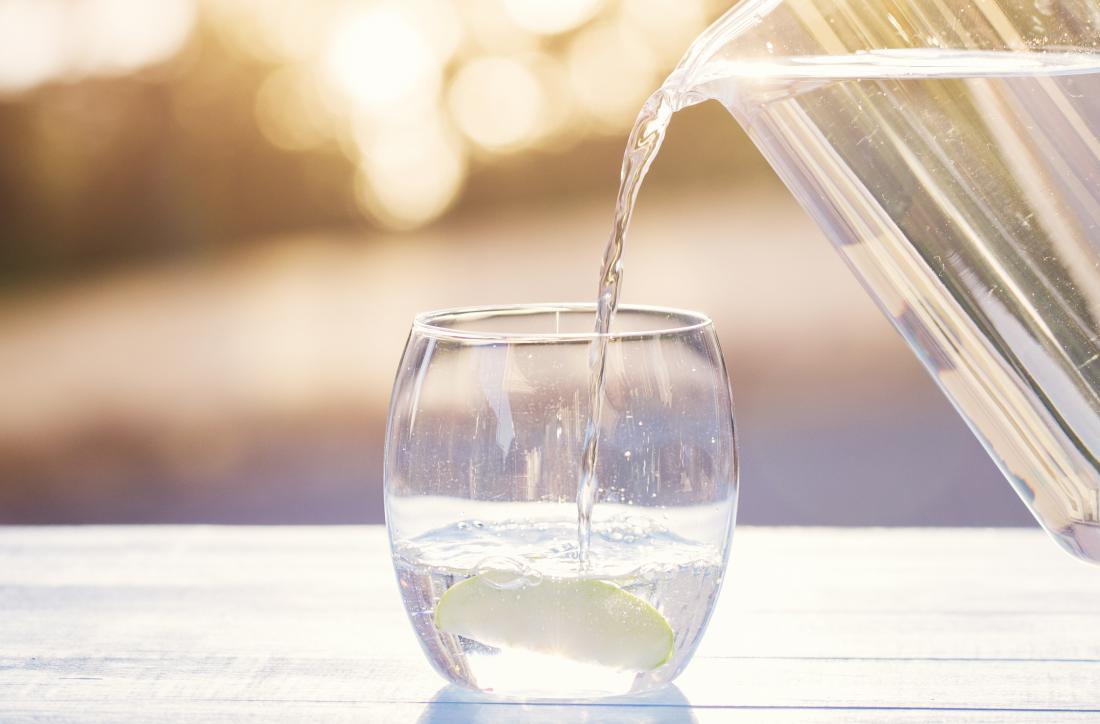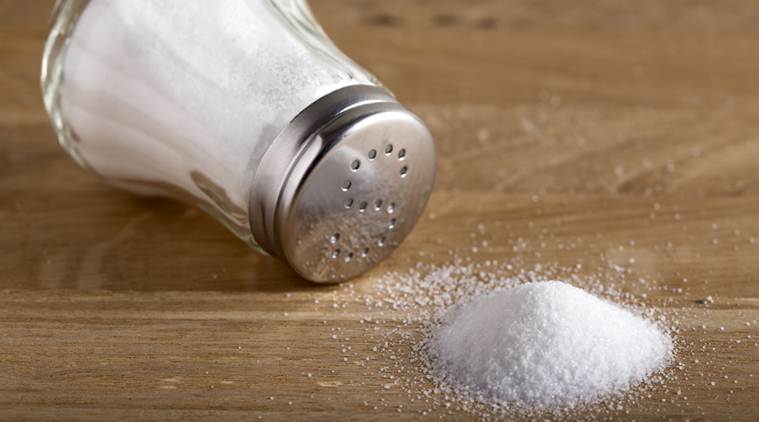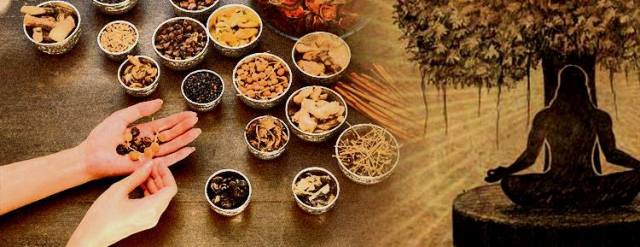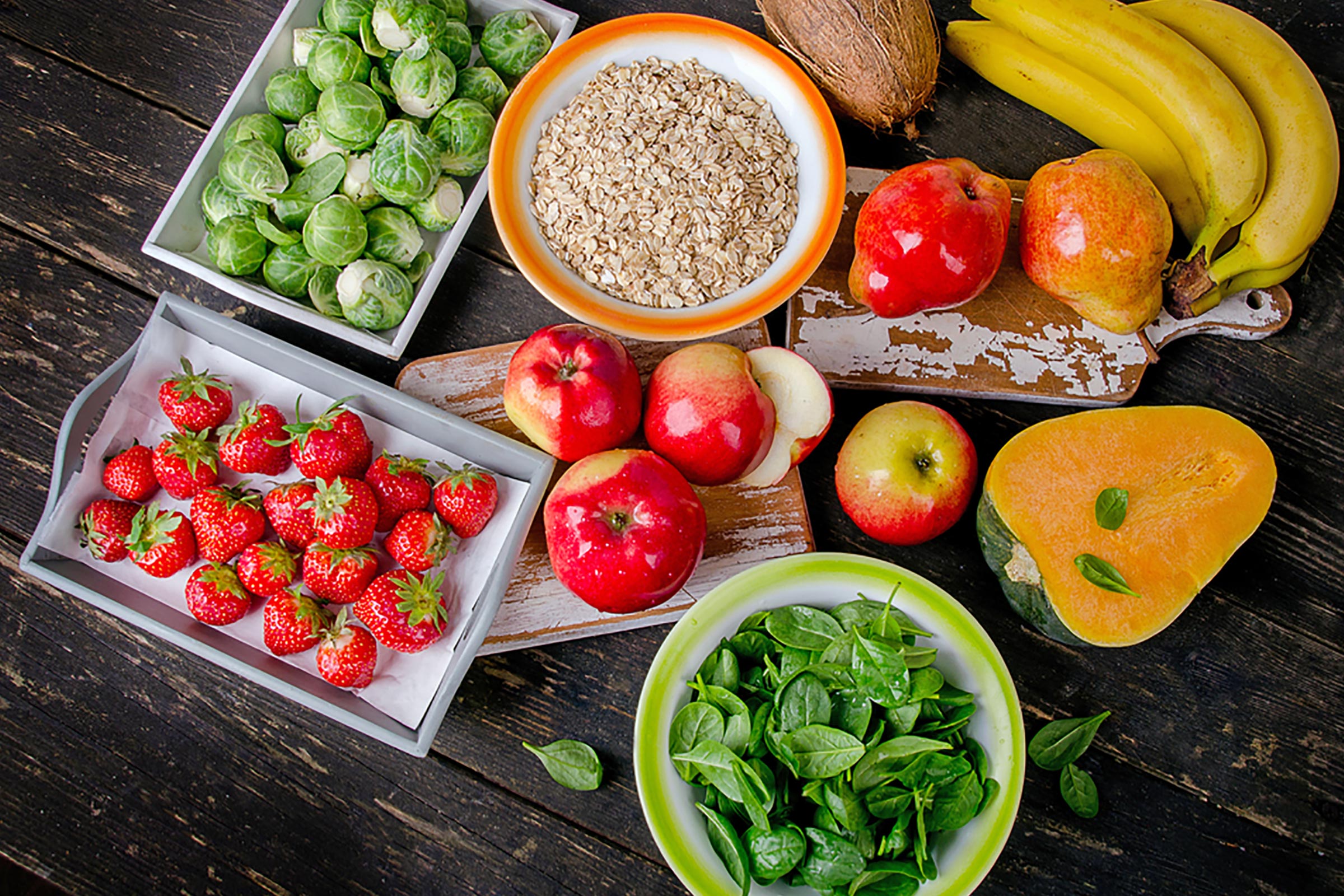Constipation is one of the most common health problems these days. According to a latest survey, about 22 percent Indians suffer from constipation in today's time. As per Ayurveda, this condition occurs when vata's cold and dry qualities disturb the colon, inhibiting its proper functioning. A day without complete bowel movement can be very unsettling and sometimes painful. Our modern lifestyle is such that it has given a rise to this problem. Some of the most common causes are junk food consumption, alcohol drinking, smoking and over-eating. Most people affected by this problem feel bloated and uneasy with the inability to pass stool easily. Ayurveda recommends certain remedies to relieve constipation and help make the bowel movement smooth and uninterrupted. However, it does not take away the fact that you should eat balanced diet and exercise regularly to keep the bowel movement going.What Is Constipation And How Does It Affect The Human Body?
According to the book 'The Complete Book of Ayurvedic Home Remedies' by Dr. Vasant Lad, "constipation is a vata condition that expresses vata qualities like dryness and hardness. It is caused by insufficient fibre in the diet, inadequate water intake, lack of exercise, heavy meat eating and numerous other factors."
Constipation may increase the chances of distension and discomfort, flatulence and pain, and headache and bad breath; in fact, it may also lead to absorption of toxin from the colon. It is best to keep vata in balance. According to the book 'Home Doctor, Natural Healing with Herbs, Condiments and Spices' by Dr. P.S. Phadke, constipation may also cause pimples, acne, acidity, ulcers in the mouth, disturbed sleep and heartburn, and in some cases, it may cause depression.
Causes Of Constipation
Constipation is often caused by not paying attention to the call of nature in time. A sedentary lifestyle, irregular eating habits, an incorrect diet, a disturbed and worried mind, and drinking too much tea or coffee add up to an already sluggish digestion, further causing chronic constipation.
Here are the remedies that Ayurveda suggests in order to cure constipation:
1. Follow A Vata Dosha Pacifying Diet
One of the best ways to prevent constipation is to follow vata balancing diet. Stay away from cold foods and drinks, dried fruit, salads and most beans. Favour warm foods, warm drinks and well-cooked vegetables.
2. Triphala Is Your Go-To Remedy
One of the most trusted and most effective remedies is Terminalia chebula or triphala, which is a fruit that helps cure constipation. You can have triphala tea or take one-fourth of a teaspoon of it, half teaspoon of coriander seeds and one fourth teaspoon of cardamom seeds. Grind them and have twice a day. Triphala has glycoside that has laxative properties. Cardamom and coriander seeds help relieve flatulence and indigestion.
3. Milk And Ghee
According to the book, 'The Complete Book of Ayurvedic Home Remedies,' "taking one or two teaspoons of ghee in a cup of hot milk at bedtime is an effective and gentle means of relieving constipation. This is especially good for vata and pitta constitutions."
4. Pulp Of Bael Fruit
Eating a half cup of bael fruit pulp and a teaspoon of jaggery every day in the evening before dinner may also help relieve constipation. You can also have bael sherbet along with tamarind water and jaggery added in it.
5. Liquorice Root
Take a teaspoon of powdered liquorice root. Add a teaspoon of jaggery and drink it with a cup of warm water. Liquorice or mulethi is known to promote your bowel activity. However, it is advised you consult an ayurvedic expert before taking it regularly.
6. Roasted Fennel
A teaspoon of roasted fennel taken at bedtime with a glass of warm water may act as a mild laxative. The volatile oils found in fennel seeds can help kick start digestion by promoting the production of gastric enzymes.
7. Anjeer
Anjeer, or figs, soaked in warm water also helps treat constipation, especially in kids. Figs are highly recommended due to the presence of high fibre content. You can eat figs every day in order to keep your digestion going.
8. China Grass
China grass, or agar-agar, is a dried seaweed, which is when cut into bits and cooked in milk, becomes a gelatinous substance.
Here are some important suggestions the book has in order to avoid constipation in the future:
- Drink more than four to five glasses of water in the morning. In fact, you can drink herbal teas like green tea, chamomile tea that can help boost your digestion.
- Have a fibre-rich diet every day.
- Engage in at least 30 minutes of exercise that helps kick-start your digestion.
- Eat lots of seasonal fruits and vegetables to add up to the bulk.
Keep these points in mind and bid goodbye to constipation. Also, before consuming any of the foods mentioned above, we suggest you consult your Ayurveda expert first.
Everyone has heard the advice 'drink eight-ounce glasses of water a day', which is popularly known as 8 by 8 rule. Another popular advice is 'drink 4 glasses of water empty stomach', aka Usha Paana Chikitsa, a term used widely in Ayurveda.
People advocate intake of water on an empty stomach, describing how it cleanses the body and cures a wide range of diseases starting from allergies to cancer. Messages regarding its benefits are forwarded in WhatsApp groups and on Facebook as if it’s the elixir of life as described in the world-renowned book 'The Alchemist'.
Usha Paana in Ayurveda
Originally described in Rasayan Adhyaay of Ashtang Hruday, it has been stated that a person who drinks Sheetodak i.e cold water early morning will continue to remain young. Many people start following this process
blindly without understanding the fine details involved.
-First of all, this has been described as a rasayan and hence, it should be only followed by a person who has underwent detoxification through Panchkarma. Even if detoxification is not possible for everyone in today's era atleast the concerned person should be devoid of any illness.
-Secondly, according to Ayurveda, a person should get up at Brahma Muhurat i.e around 5.30 am. So even if without detoxification a person has to practice Usha Paan as a routine then he should consume it at around 5.30 am in the morning after passing stool because that’s the first thing that has been advised after getting up.
Half the people who practice Usha Paan Chikitsa, drink water to help them get relieved of constipation, which is actually bad for their health. It is as if they try to push the stool out from their body by drinking excess water.
Relation of water intake and meals:
'Sam Sthula Krusha Bhukta Madhya Antah Prathama Ambu Pah'
A simple sutra mentioned in DravDravyadi Vidyaaneya Adhyay describing effects of water intake while having food, after intake of food and before intake of food.
1. It is clearly stated that a person who drinks water while consuming food continues to remain in same state of health i.e swastha (Healthy).
2. If a person wants to gain weight, then he should drink water just after consuming his meal. (Max 160ml)
3. If a person wants to lose weight, then he should drink water just before consuming his meal.
Here drinking water just before meals will make the person get a feeling of fullness and hence, automatically his food intake will decrease. Of course, he has to stop eating as soon as his hunger is satiated. He should not eat food just because he eats that much quantity everyday.
To know the quantity of appetite a person should have just consider to divide your hunger/appetite in four parts. Consume food, which will fill two parts. Have one part water and keep the remaining one part of your appetite empty.
Another advice we get from many people, especially from Naturopathy is to not have any water during meals Have a jug (450 ml and above) full of water after 40 Mins of consumption of food.
Firstly this advice has nothing to do with Ayurved. Naturopathy and Ayurved are not even closely related.
Ayurveda practitoners follow the sutra given below :
-Ajirne Bheshajam Waari Jirne Waari BalPradam
-Bhojane Cha Amrutam Waari Bhojanaante VishPradam
1. If a person suffers from indigestion then he should consume Ushnodak Jal (warm water) as medicine.
2. Water consumed after the food is digested (Minimum 6 hrs after meal) will increase Bala (Body Strength).
3. Water consumed during consumption of meals will act as Amrut (Elixir of Life).
4. Water consumed in large quantity after meals will act as a Visha (Extinguishes the Agni of Body).
5. Here large quantity is important because bahu ambu paan (Very HighWater Intake) is responsible for initiation of many diseases according to Ayurved.
6. Water to be drank after meals to increase weight is not in large quantity but around a glass only 160ml max. So no question of conflict arises between the two sutras.
How much water intake should be considered necessary?
A very tricky question as it has got no straight answer. Every person's need varies according to their body needs as well as their line of work. This can be easily explained by an example, A businessman, a farmer, an army man all work for eight hours. Businessman is sitting in an A.C office. The farmer is toiling in the sun. The Army man is guarding our border in the Desert. Will each of them require the same quantity of water? The answer is definitely NO. The same way, even if you are living together in the same family, every member's water intake need will be different. To come up with a general statement which can be useful for everyone, it can be said that instead of having 8 ounces glass of water a day, kindly - 'Remember to have 8 ounces of fluid (liquid in any form) a Day''
Maximum researchers/doctors agree with the above statement. Fluid means any liquid. It may be soup, juice, dal, etc. Next time you come across advice regarding water intake, I hope information shared here will help you take the correct step.
Salt is one of the essential ingredients in cooking. In its absence, food items do not taste good. The importance of salt can only be felt, when it is not present in any item. Different types of salts are sea salt, rock salt, black salt, etc. Not only do they all differ in taste and texture, there are also differences in mineral and sodium content.
Let us take a look at the benefits and side-effects of all the above-mentioned salts:
-Regular Table Salt: Table salt is the one people have on regular basis and use to prepare dishes for taste. Production of table salt involves mining and use of vacuum pan evaporators required for extraction at very high temperature.
##Benefits: Benefits of table salt come from its two major elements, sodium and chloride.
-Sodium: It plays a major role in maintaining the delicate balance of fluids and substances in and outside of cells. Hence, this mineral is fundamental to keep the bodies hydrated and helps in proper functioning of the nervous system.
-Chloride: Chloride and sodium along with other minerals like potassium, calcium and magnesium help to keep the physiological activities in check, by keeping them in right amounts.
Side-Effects:
-Overload of table salt can hamper the kidneys and interrupt in the functioning.
-Too much intake of table salt would lead to increase in blood pressure.
-Consuming too little salt can also result in electrolyte imbalance.
2. Sea Salt: Sea Salt is produced from sea water. Sea water is sun-dried and canalized in nature.
##Benefits:
-Sea Salt helps to avoid dehydration
-Helps to get rid of rheumatoid arthritis
-Helps in the proper functioning of brain, nervous system and muscles
The only side-effect is that people who suffer from high blood pressure should avoid taking sea salt.
3. Black Salt: Black Salt, a kind of rock salt, which is salty and pungent in smell. It is mainly composed of sodium chloride along with various other components, which give the colour and smell to the salt.
##Benefits:
-Helps in curing the problem of constipation and bloating
-Consuming black salt assists in treating joint problems
-Helps to lose weight
-Cures respiratory problems and heartburn
##Side-Effects:
-Consuming large doses of black salt can lower down the digestive system
-Problem of hypertension may arise
4. Rock Salt or sendha namak: Rock salt is the purest form of salt - unprocessed and raw, devoid of environmental pollutants and chemical components. It contains 84 out of the 92 trace elements required by the body including potassium, iron, calcium, zinc, magnesium, copper and so on.
##Benefits:
-It helps in balancing blood sugar
-Improves digestion
-Boosts metabolism
-Builds immunity
-Leads to increase in energy
-Provides pH balance
-Promotes sound sleep
##Side-Effects:
-Makes a person lethargic
-Leads to dehydration
-Weakness creeps in
-Irritation
Now, when you know the pros and cons of all types of salts, you can decide which one suits the needs of your body and which one should you avoid consuming.
The way your day starts can affect your entire day and nothing is worse than fighting constipation in the morning. Along with a feeling of heaviness in the abdomen and bloating, constipation can also cause mood swings and lower your attention span. While laxatives can be temporary quick fixes, they can worsen the problem over time.
Hence, it is better to treat this disorder with a few simple lifestyle changes and home remedies.
Eat plenty of fibre: A bad diet is one the key factors triggering constipation. Fibre not only fills the stomach, but also helps add bulk to your stool making it easier to pass. Ideally, a person should have 20-40 grams of fibre a day. If you suffer from chronic constipation, you can increase this amount a little as well. As an easy way to increase your fibre consumption is ensure that you eat some form of raw salad with every meal. Other foods that are rich in fibre are oats, almonds, cereals, beans, lentils and fruits.
Ginger tea or mint tea: Ginger is a warming herb, which when had in form of tea can make the body generate more internal heat. This helps activate the digestion process and thereby relieves constipation. The menthol in peppermint has an antispasmodic effect that helps relax the digestive tract muscles and makes it easier for stool to pass through. Dandelion tea can also be used as a mild natural laxative.
Castor oil: Castor oil is a popular natural laxative. This is because one of the components of this oil helps stimulate the small and large intestine. To benefit from castor oil, have 1 or 2 teaspoons of the oil on an empty stomach. You should be able to pass stool within about 8 hours.
Drink plenty of water: Water not only hydrates the body, but also helps food move along the digestive system. Without adequate water, the stool is likely to be hard and difficult to pass. Ideally, you should drink at least 8 glasses of water a day. Do not count artificially sweetened beverages as part of this count as they can actually cause constipation instead of ease it.
Warm lemon water: Lemon juice helps stimulate the digestive system and hence is ideal for treating constipation. When mixed with warm water, it can help eliminate toxins from the body. Adding a little honey to the mixture can also work as a mild laxative. Alternatively, you could add salt in place to honey as this encourages the bowel muscle contraction and is rich in magnesium.
Constipation is a very common, but irritating problem that mostly occurs due to the absence of adequate amount of fibre or water in your diet. Also, a side effect of certain medications or less exercise can lead to constipation. Whatever may be the cause behind it, you can easily relieve yourself from this stomach ailment without consuming any drugs. Here are some natural laxatives, which are easily available in your kitchen and prove to be very effective in eliminating constipation.
1. Lemon
Lemon contains citric acid, which has the ability to stimulate the function of digestion in your body. The action of lemon on your digestive system enables it to get rid of the toxins and undigested material that generally accumulates on the colon's (the last part of your small intestine) walls, giving rise to constipation as a result.
Directions: collect the juice of 1 lemon in a cup by squeezing it. Fill the rest of the cup with warm water. Drink it every morning.
2. Castor oil
Castor oil is often referred to as a stimulant laxative and is a very useful remedy for constipation. Castor oil enables smooth movement and functioning of the intestines, making it easier for stool to pass.
Directions: drink 1 to 2 teaspoons of castor oil on an empty stomach. It takes about 8 hours to show its effect, so decide which time of the day will be suitable for you to consume it.
3. Aloe vera
Besides acting as a remedy for minor burns and cuts, aloe vera gel also helps soothe your stomach. It functions as a natural laxative by making your stool softer. Moreover, it aids in protein digestion and makes the muscular structure of your intestines stronger, consequently providing relief from constipation.
Directions: have 2 tablespoons of aloe gel every morning by mixing it with your glass of fruit juice, or consume 1 cup of aloe vera juice whenever you feel constipated.
4. Baking soda
Baking soda is an effective cure for gas, pressure and pain in the digestive tract, and stomach ache as excessive air is released from the body by its action. It also functions as a laxative by making the passage of accumulated waste products through the intestines a smooth process. Moreover, stools are loosened and passed without pain on its consumption.
Directions: take a quarter cup of warm water and stir a teaspoon of baking soda into it. Consume the mixture as quickly as you can.













